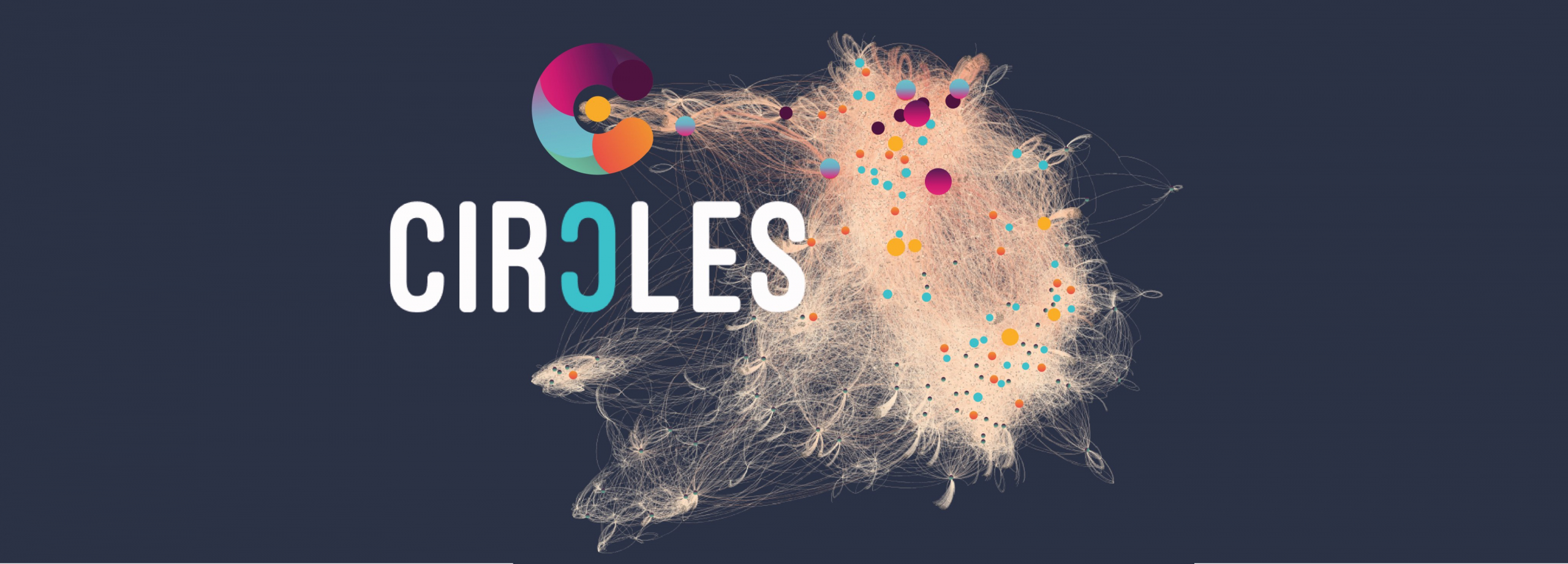Dsrrptv + Dscntrlzd ≠ Dscnnctd: A Review on Disruptive Technologies and Data Protection
Today, we delve into a pivotal subject: the intersection of disruptive technologies and GDPR compliance within the sphere of commons-oriented organizations. Let's explore why compliance measures are indispensable for strengthening these organizations' core values and how innovative and disruptive technologies can be harnessed to enhance GDPR compliance effectively.
Mizaru, Iwazaru and Kikazaru are the names if the three mystic monkeys behind the 17 century carvings at the Tōshō-gū shrine in Japan depicting the Shinto teachings of see no evil, hear no evil and speak no evil. The tale is supposed to describe people who turn a blind eye or even to the old saying “if I can’t see it then it does not exist”. This sentiment more often times than not arises in the domain of digital innovation when disruptive paradigm shifters are faced with the challenges of a legal framework such as the one that protects Personal Data.
Recently with great excitement and a fresh perspective we launched on a mission to refresh, remodel, and improve our approach to protecting our members' personal information. Circles, as a commons-oriented organization, has always strived for responsible management of communal resources, where personal information is safeguarded and shared prudently, ensuring a harmonious balance between openness and privacy while upholding values of inclusivity, sustainability, cooperation, equitable access and, last but not least, compliance.
We eagerly embraced the task of update our entire framework: from the base up revamping our data mapping to reimagining how we continue to handle the personal information of our members and collaborators, both within our community and beyond. Our mission was to ensure that our framework and protection not only keep pace with the times but also reflect the evolving needs and future plans of our interconnected network.
Our vision is fuelled, the essential values that shape our ethos, the fundamental ideas that define Circles at its very core. Our history is forged with embracing some of the most radical technologies out there. Why? the answer is very simple: because we are convinced it has the power to be a catalyst, a game changer for our community-driven goal. Innovation is not only our lifeline but also a force that invigorates these values and principles, so we can manifest them in a dynamic and impactful way. It allows us to dream and perhaps manifest how to ignite change to make a meaningful impact in the lives of communities everywhere.
Embarking on this task meant it was essential to keep this vision and ideals in mind, as well as adhere to the values and principles that shape the protection of people’s information.
There were various factors to consider, including the many adversities Circles experienced as an organisation to become the reference it is today. More importantly it was crucial to consider the journey that lays ahead.
“New York State of Mind" is a song written by Billy Joel in 1976 that initially appeared on the album Turnstiles. The song doesn't have a specific narrative or story, it is more about evoking the emotional and cultural significance of a place.
Interestingly, the protection of people’s data should have the same type of long-lasting and universally relevant nature. It should be “a state of mind”, a mindset.
Data protection as a philosophical ideal centre around the underlying principles and ethical considerations associated with the protecting people's personal information and privacy. This idea is firmly tied with wider philosophical and ethical questions, such as autonomy, dignity, and human rights.
One of the ethical dilemmas that have become most critical in data protection is the need to balance privacy with other interests such as profit, security, public safety, and technological advancement. Data protection values can vary across cultures and societies due to differing philosophical and ethical perspectives where some cultures prioritize communal interests over individual privacy or vice versa. Nevertheless, Cultural and Ethical Relativism should however never create questions about the universality of data protection. Data protection must be viewed as an extension of the principle of human dignity. It acknowledges people's inherent worth and at the same time emphasises that they must be treated with dignity and respect. The protection of their personal information prevents them from being turned into mere data points or commodities for commercial or even governmental objectives.
The General Data Protection Regulation (GDPR) was implemented in 2018 and it has come with its challenges but also many positive aspects. This legal framework progressed as a response to the quickly evolving digital landscape accompanied by persistent concerns regarding data breaches and privacy violations, coupled with the need for a consistent and solid data protection framework. It rapidly developed into a universal benchmark for regulating data protection, laying the framework for an ongoing debate about individuals' right to privacy.
The evolution can be traced as far back as post WWII when there was a growing concern on how to protect individuals' privacy from advancing technology and data processing capabilities. In the 1970’s the OECD established guidelines for the protection of privacy and transborder data flows and the 1980’s 1980s - European Convention on Human Rights emphasized the importance of data protection as a fundamental human right. In 1995 the EU issued the Data Protection Directive establishing a framework for data protection. Finally in 2018 the EU finally introduced a harmonized set of rules significantly increasing consequences for non-compliance. Its implementation has come with its challenges but also many positive aspects.
Some of those challenges have been that compliance costs can be high, demanding a large number of different resources. The language is not straightforward, and often lead to misunderstandings and makes compliance far from easy. Furthermore, numerous sectors consider the GDPR too burdensome and consider it could thwart innovation and technological developments by producing additional administrative burdens. Nevertheless, this framework drastically strengthened individuals' privacy rights and introduced a principle of accountability, requiring organizations to demonstrate compliance. Among the privacy rights, it incorporates the right of individuals to access, rectify, and erase their data, as well as the right to data portability. It imposes the obligation of reporting data breaches to the authorities as well as the affected individuals and has a global impact extending beyond the EU. Lastly, it promotes a concept of "privacy by design and by default". This means that organisations should strive to include data protection as the default setting in the design and development of any product, service, or system.
This last principle is of vital importance to the development of Circles as a Cooperative and in its pursuit to establish a Universal Basic Income system. Circles has become a benchmark and a trailblazer establishing a pilot program promoting the implementation of a universal wage system that can guarantee people an income. It has explored the intersection of how innovation and disruption allow people to generate a form of electronic currency without any of the societal or structural requirements allowing them to take the responsibility to issue each other promises without the intrinsic need for oversight or even repayment.
It operates as a collaborative network generating a decentralized economic ecosystem where individuals have unique credit profiles and can extend and receive "Credit" from one another without the need for conventional intermediaries and based on a web of trust.
When people become members, a new cryptocurrency is created for them on a smart-contract-enabled blockchain. This personal currency is regularly minted and added to their account becoming the base for the property of the system. Members then have the ability to trust other members’ currencies which means they must consider these other currencies as identical to any other system currencies that they hold. The goal in this quest is to give way to an interconnected economic system based on an interrelated “web of trust.” This new paradigm is called Circles and it is based on individualized cryptocurrencies and a social graph of trust that connects these currencies.
In this context trust is not merely a social concept; it has a tangible economic impact. When individuals trust each other within the network, it signifies their willingness to recognize and accept each other's currency as valid. Trust is also intrinsically linked to identity because trust is fundamentally reliant on the ability to verify and confirm the identity of individuals or entities. Verification of identity is particularly crucial in contexts where security, safety, and accountability are essential. In an increasingly digital world, trust is often established through methods of identity verification, reputation, and consistency, which can guarantee that interactions are reliable and secure. The concept of trust is closely intertwined with the idea of identity in a broader context.
The concepts of trust and identity are also closely linked to the elements that establish the concept of personal data and the instruments for protecting this personal information in a variety of ways. The GDPR greatly emphasizes the importance of trust in the way personal data is being managed or processed. Individuals must have trust that their personal data is managed responsibly and in accordance with their consent. The GDPR also considers specific rights concerning an individual’s their personal data, including the right to access, rectify, and erase their data. This empowers individuals to have greater control over their digital identity and builds trust in the system. Additionally, another aspect interlaced with trust and identity is that organizations must only process information necessary and for the specific purpose it was collected. This essentially guarantees that our information must not be collected indiscriminately, and it must not be used for any other purpose than that originally intended.
Trust serves as the cornerstone underpinning the very essence of the unique basic income model established by Circles. Driven by solidarity this system operates in a decentralized manner, relying on Distributed Ledger Technology (DLT) instead of centralized authorities.
One of the central and unique aspects of Distributed Ledger Technology is its decentralized nature which guarantees a greater transparency with data being distributed across a web of nodes. Considering these two principles will enable the inclusion of enhanced data privacy features that can safeguards the sharing of only specific data and that such data sharing remains limited to specific recipients.
The organization is set to achieve designing and implementing even more radical, decentralized, and privacy-preserving protocols in the near future to align with its visionary objectives. However, when it comes to data protection and the application of the GDPR disruptive + decentralized ≠ disconnected.
One of the most significant challenges Distributed Ledger Technology has in conforming with the General Data Protection Regulation is the inherent tension between their intrinsic principles that do not always naturally fit together. The GDPR framework constitutes a comprehensive set of rules designed to protect the privacy and rights of individuals regarding their personal data while this technology is a decentralized and immutable record System that was not originally designed with data protection principles in mind.
Therefore, the success of incorporating any cutting-edge radical technologies harnessing its true potential will be to embrace and incorporate Data Protection the way it is conceived by the GDPR from the very beginning.
Andres Arevalo-Maklouf,
from Circles Coop
YOU MIGHT ALSO LIKE






Credit Where Credit is Due